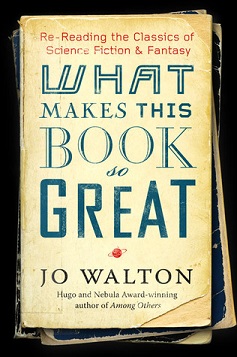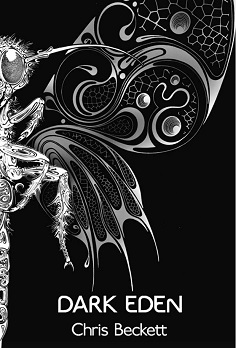Ian Sales is worried and upset about the Hugo Awards:
First, a bunch of right-wing scumbags campaigned to get some of their right-wing scumbag friends onto various of the shortlists. And they mostly succeeded – of the twelve people on their “ideal ballot”, seven made it onto the shortlists. What they did was perfectly well within the rules, and similar campaigns have taken place in the past – although none have been as successful as this one. Let’s be clear about this, however – this wasn’t because they wanted to see their friends on the shortlists, this was a direct attack on a part of genre fandom. And yes, it’s an attack on the part that exhibits the qualities genre fandom should exhibit – inclusivity instead of misogyny and homophobia, diversity instead of racism and marginalisation, progressiveness instead of regressiveness… you know, the qualities associated with civilised human beings.
Worse, this was a revenge attack for what happened with the Science Fiction and Fantasy Writers of America, which cleaned up its act this year and gotten shot of some of the rightwing loonies cluttering up its publications. Vox Day and friends had problems with the SFWA, so they took revenge by pushing a political slate of nominations on their readers designed to annoy the liberals in their head. So in order to “punish” the SFWA they’re wrecking the Hugo Awards, which have nothing to do with that organisation. What they’ve done is legal even if it goes against the spirit of Hugo nominations. It’s a typical rightwing tactic, trickled down from how the Republican/Tea Party abuse of congressional procedures in real life American politics.
As such, it’s therefore much more of an attack on the Hugo Awards than the nomination of the Wheel of Time series, which misguided as you think it may be, is done out of a genuine love for these books, without any political undercurrent. This has happened before and will again, the only novelty being that an entire series has been nominated under the idea that it is a complete work, just like the Lord of the Rings books would’ve been had the Hugo existed then. Whether this argument holds merit for this particular series is debatable, but it’s not a problem for the Hugos as a proper, non-political award, unlike Vox Day’s stunt nominations.
Apart from the fact that Day is trying to punish SFWA by meddling with the Worldcon/Hugo Awards, the real problem is the politicalisation of the Awards, which hasn’t been done to the Hugos before, or at least not on this scale and this successfully. Of course, they imagine that they’re in a war with a leftist-liberal conspiracy to make science fiction politically correct, but we sane people do not need to encourage that delusion. It does make it harder though to solve this problem, when one faction thinks it’s in a war for the very soul of fandom while the rest of fandom just thinks it’s nominating the books and writers they like.
Even if there were an organised faction to oppose these chuckleheads, it couldn’t engage in the same tactics without destroying the awards. You can’t remove their slate form consideration because how it was nominated was all done according to the rules, even if the intent clearly goes against the spirit of the Hugos. At the same time, this slate should not be treated as normal nominations either, to be judged on merit, as S. L. Huang explains. The only thing left therefore is either to boycott the awards entirely and leave the wingnuts their victory, or to consistently vote No Award above the wingnut candidates. That latter would at least neutralise this attempt to game the Hugos. Unlike Ian, I have no real worries about the credibility of the awards outside this particular context; the Wheel of Time nomination or the idea that a couple of lesser books by popular writers are on the list doesn’t break the Hugo because that has always happened.Sometimes they even win.
Update: according to Feòrag, it’s better to list what you want, then No Award and not list the rightwingers, so their votes can’t be transferred.

